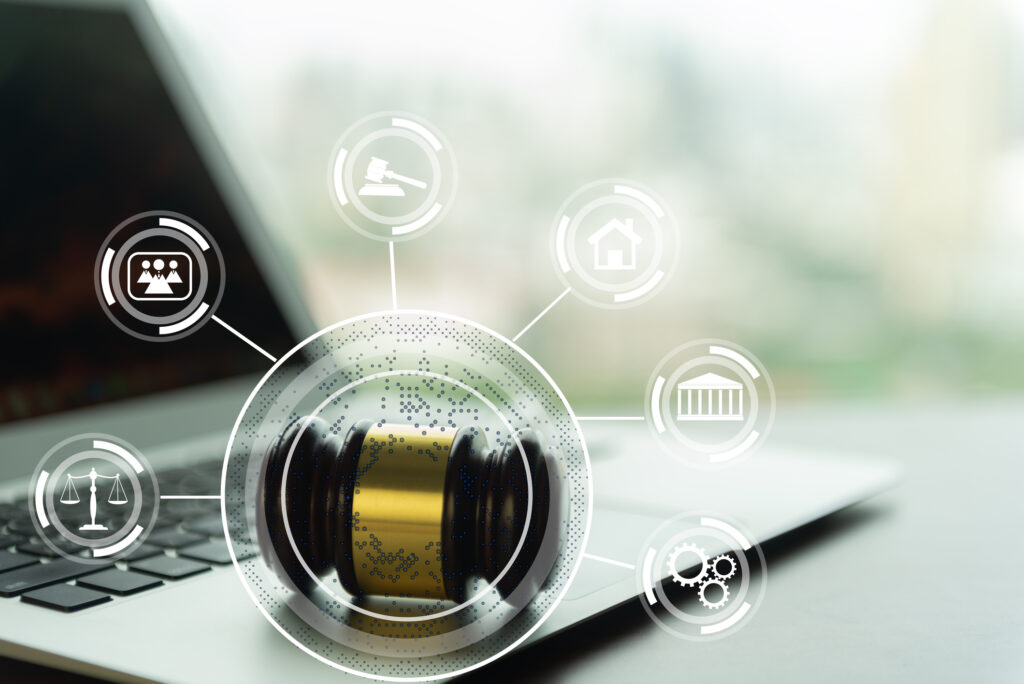COVID-19 has changed litigation. The pandemic forced courtrooms to shut down and freeze ongoing cases. Virtual procedures took over, but digitally arguing a case presents new challenges.
A recent GLG survey was sent to tens of thousands of litigators from practices of all sizes across the U.S. The survey found that most attorneys (74%) have participated in and support virtual hearings. Despite their support, most (87%) of respondents are eager and ready to return to in-person litigation.
A majority (63%) of those surveyed expect an increase in litigation as courtrooms reopen due to the backlog of cases. Practice areas like bankruptcy (52%), insurance (54%), and labor and employment (56%) will likely see the most significant uptick.
Increasing potential claims in the context of the coronavirus
Expect to see more lawsuits and disputes arising out of employment relationships. The employer‑employee relationship, unemployment, and re-entering the workforce are new issues popping up post-lockdown.
Business owners are likely to focus on collections efforts in anticipation of defaults, forbearances, and alterations to short-term payment plans. Don’t be surprised to see an uptick in non-compete litigation, especially from startups, as laid off or furloughed professionals seek new employment opportunities.
A digital transformation
Email and file-sharing applications
Law firms and attorneys need to ensure that client confidentiality is maintained within the office and remote work settings. Email continues to be the standard form of communication. With the rise of file-sharing applications like Dropbox and Google Drive, lawyers have physically stepped away from handing off documents. This can save time and headaches when trying to track down records for cases.
If using a records management company, ensure documents are stores securely and in compliance with client confidentiality.
Rerouting phone calls
A lot of attorney-client communications occurred over the phone pre-pandemic. For the law offices that have remained open, attorneys and staff can take calls as usual. However, for the firms that have opted to keep their offices closed, rerouting calls to remote-working attorneys and staff has proven to be a good solution for the time being.
Video conferencing
Like other businesses, many firms are utilizing secure video conferencing for communications with clients and other lawyers. Video conferencing applications can be used with any device that has a camera, like a laptop or a smartphone. Video conferencing is especially useful when sharing a screen is necessary.
Video conferences will likely continue as law firms work through the backlog of cases from the last year. It’s vital to avoid security mistakes. Keep software up-to-date, use passwords and unique ID numbers for each meeting and remember to avoid sharing private information during the video conference. Always read the privacy policies of the application being used to understand how the information will be handled.
Keep claims at bay: mitigate security risks
1. Create and implement a data security policy
Make a clear, easy-to-follow plan for data security and share it with everyone at the firm. Educate employees and enforce procedures like using two-factor authentication for logins and only using apps vetted by the firm. Additionally, a file retention policy can help identify how to store confidential files and when and how to distribute them, if needed.
Continuously train staff on mitigating data risk. Not everyone knows how to spot and avoid a phishing email. Training can reduce user errors.
Remember, an attorney’s duty is to safeguard client information from unlawful and wrongful distribution.
2. Use strong passwords
Use password management tools to help ensure passwords remain secure and make management simple. Enforce strong password rules: Some legal tech software, like Clio, feature password policy settings that keep your passwords in line by requiring strong passwords.
3. Look at access control
Everyone on your staff doesn’t need to know everything. Be intentional when considering granting permission to viewing specific matters. Enforce the Principles of Least Privilege and Need to Know.
4. Ensure Lawyer Professional Liability policy is robust
Clients may still be hesitant to visit offices. Regular communication updates can help alleviate fears about their case not being legally represented. Continue to plan for the long term.
The Professional Liability market for attorneys is a competitive industry. Working with McGowan Program Administrators will ensure that attorneys are protected if a claim arises. A Lawyers Professional Liability policy will cover unique risks to your business, expertise, caseload, and more.


